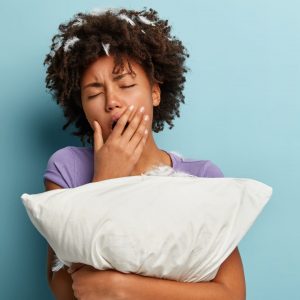What You NEED to Know About Insomnia and Sleep Hygiene

Key Tips For A Good Night of Sleep
Nearly everyone has experienced occasional difficulty falling asleep and staying asleep, but for many people, this problem is all too frequent. Because chronic sleep problems are typically maintained by many different factors, consistently getting a good night’s sleep requires multiple changes in our daily habits. Some of these habits are known as sleep hygiene, a term that describes any action which creates optimal internal and external environments for sleep. Many sleep hygiene strategies are easy to incorporate into your life but you may find others more challenging. You do not necessarily need to implement all of them immediately, but it is important to keep in mind that best results tend to be seen when people use a combination of techniques. We’ve listed some of the most effective elements of sleep hygiene for you below, as well as some tips for success in implementing them.
Sleep Hygiene
Lower the Temperature:
Cooler temperatures stimulate production of melatonin, a hormone that makes us feel sleepy. Lowering the thermostat at night can greatly improve sleep but be careful not to make the temperature too cold!
Reduce or avoid caffeine:
Even when consumed during the day, caffeine can disrupt sleep because it remains in your system for a long time. On average, the stimulating effects of alcohol wear off after about 5 hours, but in some people, caffeine can disrupt sleep for up to 10 hours later.
Go to bed and wake up at the same time every day:
This can be especially difficult for shift workers and those who regularly sleep in on the weekends, but having a consistent sleep schedule is extremely important because it helps regulate your circadian rhythm and trains your body to know exactly when it is supposed to get sleepy.
Engage in regular physical activity:
Being active on a regular basis has been found to shorten the amount of time it takes to fall asleep and also improve the quality of your sleep. Be sure though to avoid physical activity in the last 2-3 hours before bed time.
Avoid screens such as TV, phones, and computers:
Because the short-wavelength of light emitted by screens interferes with the release of melatonin and disrupts the body’s “internal clock,” it is often helpful to avoid screens 1-2 hours before bed.
Avoid alcohol:
It is best to stop drinking alcohol 3 hours before bed because even though it can help people fall asleep more easily, it reduces sleep quality, which results in feeling less rested the next day. In addition, it can cause you to wake up in the night.
Turn the clock so that you can’t see it while lying in bed:
Most people with insomnia are familiar with the frustration, worry, and even anger caused by glancing at the time when they are struggling to fall asleep. Unfortunately, these negative emotions only make it more difficult to sleep because they increase agitation.
Cut down on smoking:
Although it appears relaxing, nicotine is a stimulant and can disrupt sleep. Quitting or at least reducing smoking can help improve sleep, especially if you avoid smoking at least 3 hours before going to bed.
Establish a quiet time (30-60 minutes) before bedtime:
Use this time to relax so that your brain knows the time has come to start preparing for sleep. Only do quiet activities that are enjoyable on their own rather than activities that you need to accomplish.
5 Key Tips for Success
- Be patient: Sleep problems develop over time so it can take some time before you start seeing significant results.
- Remember that everyone is different: Sensitivity to the changes listed above varies a great deal from person to person. For example, some people seem virtually unaffected by screens or caffeine whereas others find that avoiding one or both before bed significantly improves sleep. You won’t know what really affects you until you make changes, so try to approach this process with curiosity and experiment with different strategies until you find a combination that works for you.
- Remember that people change: Because our bodies change as a result of age, medication use, and other factors, so does our sensitivity to all of the sleep hygiene strategies. Something that had no effect on your sleep 10 years ago may profoundly affect your sleep now.
- Talk to a mental health provider: If you don’t see much improvement after a couple of weeks or if you are experiencing difficulty making some of the sleep hygiene changes, consider speaking to a mental health provider. Many of them have specialized training to help identify the causes of your insomnia so that you can focus your energy on the strategies that will have the most impact on your sleep. A mental health provider can also help you implement a plan specific to you, your needs, and your lifestyle.
- Know that there are additional techniques which may help: Improving sleep hygiene is not always enough to improve sleep, especially if your insomnia is influenced by additional factors. When this is the case, people tend to benefit from combining sleep hygiene with other strategies, particularly stimulus control and sleep efficiency training. These are more complex and best learned with the help of a mental health provider who will tailor treatment to your needs, teach you these strategies, and ensure you are implementing them correctly so that you can achieve optimal results.
Don’t be this guy!
Written by Dr. Ashleigh Fellows

